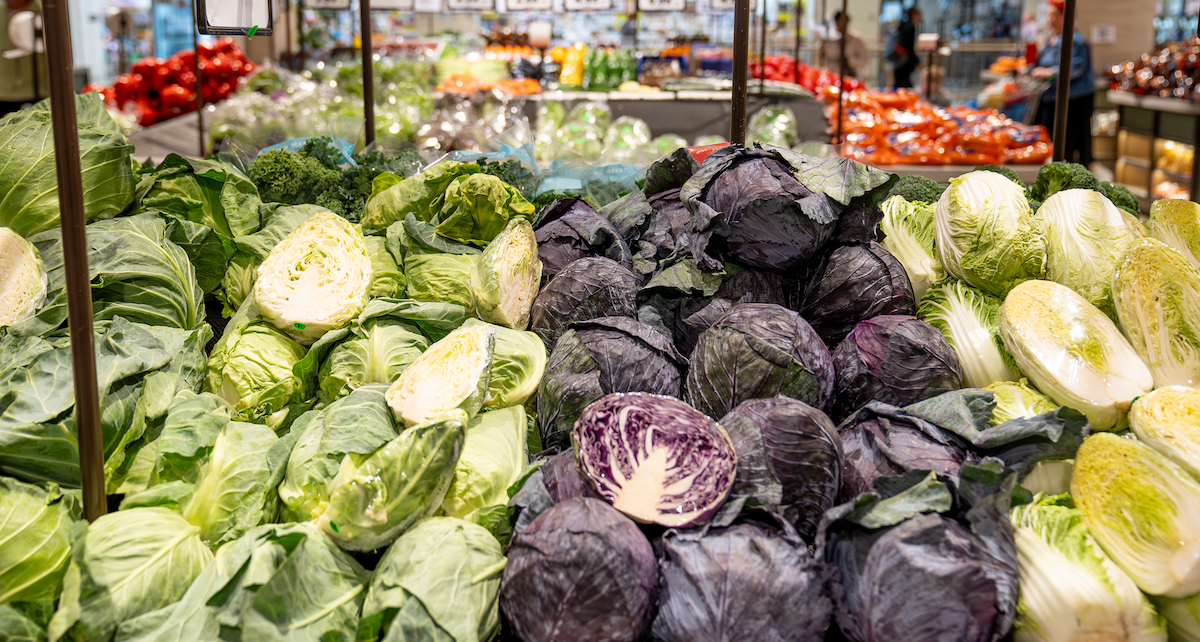News


60% of the world’s certified organic farmland, is on the brink of a significant change as the Rural and Regional Affairs and Transport Legislation Committee investigate a standardised system for organic claims in Australia.
The Wild West of Organic Labelling
Despite accounting for 60% of the world’s certified organic farmland across an area larger than Thailand (53 million hectares), Australia only has a 1.36% share of global organic retail sales.
This discrepancy has been suggested to be partially a result of our lack of regulation for organic labelling.
Currently, products in Australia can be labelled and sold as “organic” with as little as one organic ingredient, leaving consumers to navigate a confusing marketplace.
“Products in Australia can claim to be organic with as little as two percent of the ingredients being certified organic,” noted Nationals Party leader, David Littleproud.
“It defies logic that organic products currently aren’t required to be certified or comply with any particular organic standard, but can still call themselves organic.”
Australian Organic Going Global
Australian Organic Limited (AOL) Chief Executive Officer, Jackie Brian, said the National Organic Standard Bill would help our government negotiate equivalency agreements with other nations.
“…producers would only need to attain one certification, the National Organic Standard established by this Bill, cutting red tape and stimulating export growth,” she said.
Data from the Department of Agriculture, Fisheries and Forestry shows that in 2022-23, the value of the Australian domestic and export organic industry topped $2.3 billion, with organic goods exported to 55 countries.
The government recently signed a Statement of Intent on Organics with China and is negotiating an upgraded Organic Equivalency arrangement with the European Union and a Mutual Recognition Agreement with India.
Australia currently has certified organic equivalency arrangements in place with Taiwan, the European Union, the United Kingdom, Japan, and Switzerland. There are also conformity arrangements in place between certain Australian certifiers and foreign governments, most notably the United States.
The Proposed National Organic Standard Bill
The National Organic Standard Bill aims to address this issue by introducing stricter regulations for organic labelling. National Party leader David Littleproud describes it as a “commonsense solution to improve the domestic regulation of organics.”
If passed, the Bill would establish the National Standard for Organic and Bio-Dynamic Produce as the mandatory domestic certification standard for businesses selling organic products in Australia.
The bill has garnered support from major industry stakeholders, including The Organic Development Group, which includes all five organic certification bodies and the two largest peak groups, Australian Organic Limited (AOL) and the National Association for Sustainable Agriculture Australia (NASAA), along with Organic and Regenerative Investment Co-operative (ORICoop) and Certified Organic Biodynamic Western Australia (COBWA).
Australian Organic Limited (AOL) Chief Executive Officer, Jackie Brian, said the National Organic Standard Bill would establish a level of consumer protection that has been “desperately needed”.
The Good, The Bad, and The Organic
While the bill promises significant benefits, it’s not without potential drawbacks.
A submission to the inquiry from the Department of Agriculture, Fisheries and Forestry (DAFF) said regulation of the domestic organics industry had been a long-standing issue, however, the absence of a domestic organics regulatory framework does not prevent international trade.
“Australia’s organic export system is recognised as equivalent with the European Union, Japan, Switzerland, Taiwan, and the United Kingdom systems,” the submission says.
“Where equivalence does not exist, the organic industry is able to export to that market through conformity arrangements between certain Australian certifiers and foreign governments. That is the case for exports to the US, which is by far Australia’s biggest export market.”
While acknowledging that a mandatory domestic standard would ensure all organic producers were certified to the same standard the DAFF also noted there may also be some negative competition implications.
“The introduction of a mandatory standard is likely to provide a competitive advantage to businesses that are already meeting the requirements of the standard. Comparatively, businesses that are making a genuine effort to produce organic goods, but whose practices do not align with the new standard, will face additional hurdles and cost to continue to make organic claims,” the government regulators said.
Further, the requirement to have an operator certificate to sell organics would put a financial imposition on small operators and could result in a reduction in the number of farmers selling organic produce, they said.
Leaving Organics on a Cliffhanger
While the benefits of increased consumer trust and export simplification are clear, careful consideration must be given to mitigating potential negative impacts on small businesses and market diversity.
The Rural and Regional Affairs and Transport Legislation Committee is currently preparing its report, due on 31 January 2025.
References: Senate Standing Committees on Rural and Regional Affairs and Transport, The National Association for Sustainable Agriculture Australia, Grain Central
Get the latest industry updates
Contact Us
We will get back to you as soon as possible.
Please try again later.



